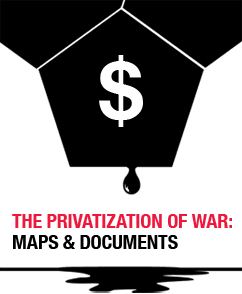All english articles
Termine:
“Worker Controlled Companies in Latin America”
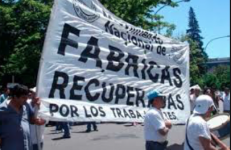
LASP Weekly Seminar Series // by Dario Azzellini
Digitalization and marketization in live music
Limits of the platform economy
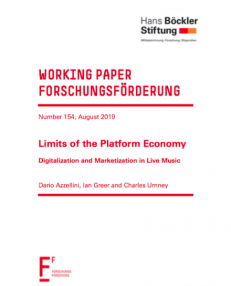
Online platforms have disrupted parts of the capitalist economy, with allegedly severe consequences in the world of work. This study examines live music in Germany and the UK, where online platforms do not dominate, despite considerable digitalization of market intermediaries. The analysis shows that, as the degree of digitalization increases, matching services tend to work less as a workers representative which is traditionally the case for live music agents and more as a force of marketization that disciplines workers by orchestrating price-based competition.
Termine:
The new Radical Urbanisms – a research exchange
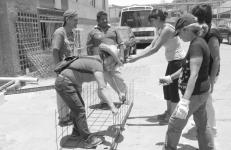
The new Radical Urbanisms – a research exchange
Keynotes from:
_ Dario Azzellini, Sociology, Cornell University, USA
_ Brendan Murtagh, Planning, Queens University Belfast, UK
_ Colin Haslam, Management School, Queen Mary University of London, UK
Organised by Peter North and the Power, Space and Cultural Change Research Cluster, Department of Geography and Planning, University of Liverpool.
Termine:
From Economic Science Fictions to Labour as Commons - Conference
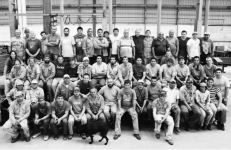
From Economic Science Fictions to Labour as Commons
Alternative Organisations & Transformative Practices (AOTP) Research Cluster Conference
(NB these are working panel titles now, subject to change)
Can the Bolivarian revolution survive the Venezuelan crisis?
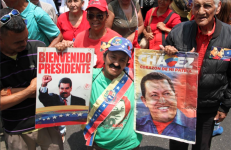
Creating the space for and allowing the Bolivarian Revolution to flourish is perhaps the most important achievement of Venezuela’s Chavista government — but can it survive the current crisis?
Interview
Dr. Dario Azzellini: Bridging the gap between academica, activism & filmmaking
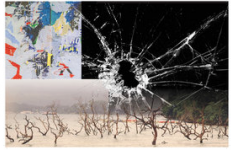
“How do you neutralize a revolutionary?... you give him an office with air conditioning.” This was one of several humorous anecdotes that Dr. Azzellini shared with me during our interview. Dr. Azzellini’s eyes twinkled with amusement as he recounted this joke someone once told him. His incisive and dynamic way of thinking and conceptualizing ideas and connections increasingly became evident during our interview.
Why haven’t platforms taken over live music?
The limits of the “platform economy”

It is often assumed that the “platform economy” is in the ascendancy, and is taking over more and more economic sectors. Because of this, much research on the matter has focused on characterising and evaluating this change: what are the relative advantages and disadvantages of this kind of work compared to more “traditional” jobs? Should we be optimistic or pessimistic about it? Hence, most current research has looked at the experience of workers in industries which are already highly “platformised” (such as ride sharing, food delivery, or clickwork).
Talk at the Asia-Europe People’s Forum and transform! conference "Our Common Social Future," Barcelona, June 8-10, 2018 - 10 juni 2018
Commons and Conflict
Today, everyone is speaking about commons and ‘commoning’, everyone wants to build commons. The World Bank has a group which is supposedly ‘protecting and improving the global commons’ and it reaches out to the private sector to ‘advance common goods’. You can find texts on commons on the website of the European Union, banks organize seminars on the commons. Transnational companies tell us they are building the commons, big magazines declare that Uber is commoning cars, and that the “sharing economy” is a form of commoning.
Interview with Dario Azzellini
Yes We Can: Worker-Owned Coops
Founded in 1973, (yes, that’s 45 years ago!) the Park Slope Food Coop is one of the oldest and largest consumer food coops in the country. It’s a presence in our lives, the source of our food, and a center for community engagement. And it’s also part of a larger coop movement that stretches back in time and exists in many parts of the world.
One Question in On State of Nature Blog
What does class struggle mean today?
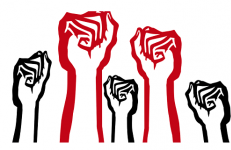
What does class struggle mean today?
Class struggle, that is, the struggle between labour and capital, is not at all a concept that belongs to the past. In a world of growing inequality, it is a reality more pertinent than ever. A recent study has revealed that since 2008 the wealth of the richest 1% has been growing at an average of 6% a year, while the wealth of the remaining 99% of the world’s population has been growing by only 3%. By 2030, the world’s richest 1% will control nearly two-thirds of the world’s wealth.
Termine:
Documentary Screening & Discussion: "Occupy, Resist, Produce - Scop Ti"
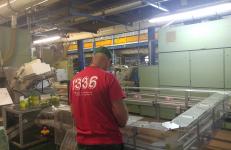
Occupy, Resist, Produce – Scop Ti
A film by Dario Azzellini and Oliver Ressler
34 min., 2018
Termine:
Occupy, Resist, Produce
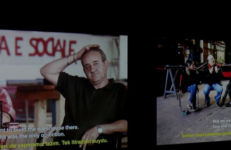
Solo exhibition of Oliver Ressler & Dario Azzellini / Curated by Dr. Azadeh Fatehrad
Termine:
A 4-channel video installation by Dario Azzellini and Oliver Ressler
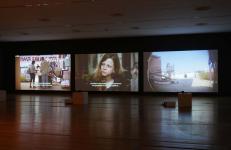
Within the framework of the exhibition
„CONSTRUCTING THE WORLD: ART AND ECONOMY 1919-1939 AND 2008-2018: … this topical exhibition is the first to illustrate the economy’s dramatic influence on art and to make global comparisons, demonstrating these in an analysis of two separate eras“
Presents itself:
Occupy, Resist, Produce
A 4-channel video installation by Dario Azzellini and Oliver Ressler, 131 min. (combined), 2014 – 2018
Occupy, Resist, Produce - Scop Ti
////// Watch film - available now //////
In “Occupy, Resist, Produce – Scop Ti”, the workers tell the story of their collective struggle and speak about their democratic organization of work. They describe the difficulties and contradictions of trying to keep up large-scale industrial production while at the same time sticking to their values and principles: solidarity, organic production and collaboration with local and regional producers.
Termine:
54th ITH Conference: "Workplace Democracy Revisited: Labour and Practices of Participation, Workers' Control and Self-Management in Global Perspective"
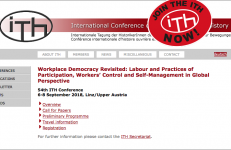
Thursday, 6 September 2018, 17:45-19:30
Keynote Lecture: Dario Azzellini (Department of Development Sociology, Cornell University, Ithaca, USA): Liberating Labour? The Multiple Facets of Workplace Democracy in Space and Time
54th ITH Conference: „Workplace Democracy Revisited: Labour and Practices of Participation, Workers’ Control and Self-Management in Global Perspective“
Organised by:
Dario Azzellini in: Council Democracy. Towards a Democratic Socialist Politics
"The Legacy of Workers’ Councils in Contemporary Social Movements"
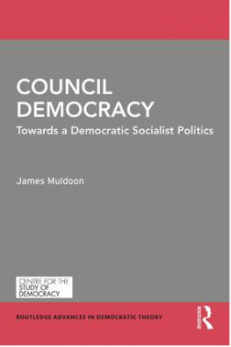
„The return to public assemblies and direct democratic methods in the wave of the global "squares movements" since 2011 has rejuvenated interest in forms of council organisation and action. The European council movements, which developed in the immediate post-First World War era, were the most impressive of a number of attempts to develop workers’ councils throughout the twentieth century. However, in spite of the recent challenges to liberal democracy, the question of council democracy has so far been neglected within democratic theory.
Book Review
Living on the Margins: Undocumented Migrants in a Global City by Alice Bloch and Sonia McKay
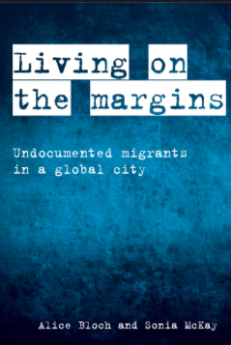
"The book offers interesting insight into the everyday life of undocumented migrants without portraying them as helpless victims. Ample quotations from the interviews underline their agency and the complex and contradictory conditions they experience in the ethnic enclaves they are forced to rely on. Bloch and McKay shed light on the circumstances, motivations, and conditions of ethnic enclave employers, who, in most of the literature on undocumented migration, are not a subject of research.
Dario Azzellini at "Our common social future: Commoning and sharing for society, the environment and the economy. A program for a democratic, participatory and transformative social protection". Asia-Europe People's Forum, Barcelona, Catalonia, June 8-10, 2018
The case for commons and social commons
What are commons? Who can develop commons? Is commoning based on harmony?
A Preview of the Future
Workers’ Control in the Context of a Global Systemic Crisis
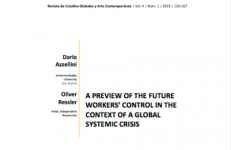
One of the ‘concrete utopias’, as Ernst Bloch called them, realistic possible concepts for a better world, that can already be found in the here and now, are ‘recuperated companies’. Focusing on the examples of the worker-controlled factories RiMaflow in the industrial periphery of Milan and Officine Zero in Rome this text allows a glimpse of how society could be organised differently.
Termine:
Implementing social commons
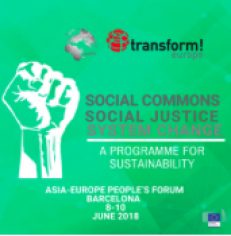
IMPLEMENTING SOCIAL COMMONS
- The centrality of economic and social rights
German Jaraiz Arroyo, Universidad Pablo de Olavide, Sevilla
- The centrality of culture for social commons
Julie Ward, MEP
- Practical implications of adopting a commoning approach to social protection – options for activism and policy development
Labour: Dario Azzelini
Gender: Elisabetta Cangelosi
interview with Dario Azzellini
Communes and Workers’ Control in Venezuela
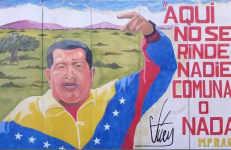
“The communes should be the space in which we are going to give birth to socialism.” – these were the words of Hugo Chávez in one of his famous presidential broadcasts. To discuss the Venezuelan communes and the new forms of participation, as well as its successes, difficulties and contradictions, we have interviewed Dario Azzellini*. He has investigated and documented theses issues throughout the Bolivarian Revolution. His book Communes and Workers’ Control in Venezuela has recently been released in paperback by Haymarket Books.
interview with Dario Azzellini
Challenging capitalism through workers’ control
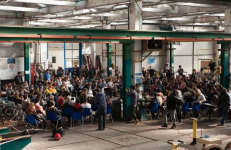
A common feature in every crisis situation, from the upheavals of the early 20th century to the neo-liberal re-structurings of the late 20th century, is the emergence of workers’ control – workers organising to take over their workplaces in order to defend their jobs and their communities.
Dario Azzellini in: Latin American Utopias: Past and Present, Edited by Juan Pro
“The Commune in Venezuela: A Utopian Prefiguration”
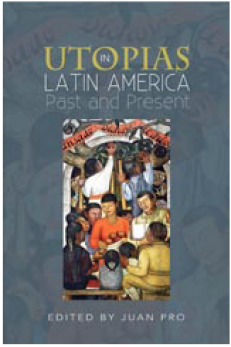
In an age in which fears about the future predominate (in the form of dystopias, ecological catastrophes and terrifying Sci-Fi scenarios), utopia is reappearing as the bearer of hope for the fate of humanity. Latin America has historically been a fertile ground where utopian projects, movements and experiments could take root and thrive, and this constitutes one of the region's major contributions to world history.
Termine:
Book launch
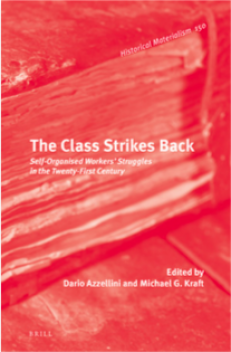
We are organizing a book launch event for 3 recent books examining the political and social dynamics of precarious work -- with case studies from Europe, Latin America, Asia, Africa, and the US. Shannon Gleeson, Lowell Turner, and Jérôme Gautié (Paris 1 Panthéon-Sorbonne) have kindly agreed to serve as discussants. The books are:
* Dario Azzellini and Michael G. Kraft, eds. The Class Strikes Back: Self-Organised Workers’ Struggles in the Twenty-First Century. Brill, 2018.
Is democracy working?
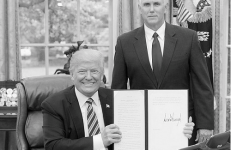
The term democracy is generally used as a synonym for liberal democracy, which is far from being the only possible form of democracy; indeed, it is even questionable whether liberal democracy was ever intended to be truly democratic. For centuries, liberals and democrats have been fierce opponents. Liberals only accepted democracy when it was limited to the political sphere, excluding it from the economic and social sphere. Liberal democracy became the new form of governance of the emerging production model (industrial capitalism).
Are we heading for another economic crash?
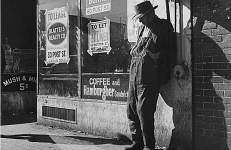
No doubt we are heading for another economic crash because capitalism is always heading for another economic crash. It is the nature of capitalism to increase surplus capital and then destroy it again through a crash or war, in order to restart the accumulation process once again. After every crisis, as historical data shows, the rich get richer and capital concentration grows. The cycles from crash to crash are becoming shorter as the accumulation of surplus capital becomes faster.
























